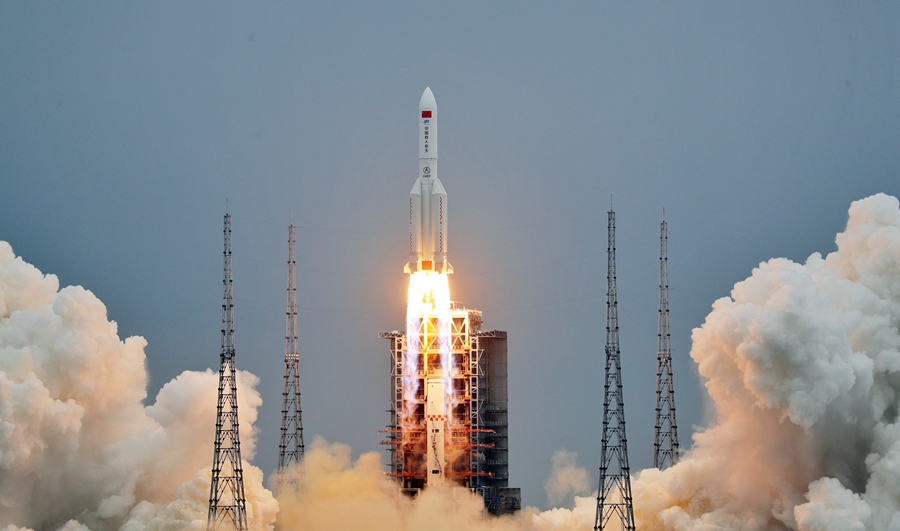China's space station takes shared future concept to space

China launches the core capsule of its space station at the Wenchang Space Launch Center in Hainan province on Thursday morning, April 29, 2021. [Photo by Guo Wenbin / Provided to chinadaily.com.cn]
China successfully launched the core module of its space station on Thursday, giving humankind a new foothold in space.
The space station will become a common outpost for space-faring countries to explore the universe through cooperation. Tianhe, the name of the core module, means "Harmony of the Heavens" in Chinese, and it conveys China's sincere efforts to promote mutual trust and peace through international partnerships aboard the space station.
The universe is vast and its exploration will never end. As humankind has developed technologies to live and work in space, political bias and the cost of space exploration are holding some countries back from venturing into space. However, China sees its space dream as part of a dream for all humankind, and its space station as a common home in space for everyone. It remains committed to maintaining peace in outer space.
A white paper published in 2016 stated that China adheres to the principle of using outer space for peaceful purposes and opposes the weaponization of, or an arms race, in outer space.
Also, in 2016, China signed an agreement with the United Nations Office for Outer Space Affairs to offer its space-related technologies and experience to UN member states, in particular developing countries.
In 2018, China welcomed all UN member states to use the space station for activities ranging from growing plants to accommodating astronauts. The move demonstrates China's unwavering belief that outer space is a common resource for humankind.
In 2019, the China Manned Space Agency and the UN Office for Outer Space Affairs announced nine international projects selected for China's space station.
As some foreign space agencies have proposed cooperative initiatives, China is looking forward to seeing foreign astronauts participate in its space flight missions, and working and living on its space station in the future.
Well-structured international cooperation can lower the costs for individual nations' space programs, promote better international understanding and help build a peaceful future.
Space exploration gives us a better perspective on the challenges and problems on Earth. Research and development in space has helped significantly advance many technologies and realize some goals that initially appeared audacious. Through cooperation, China's space station is bound to become a scientific research platform shared by the world, benefiting all humankind.